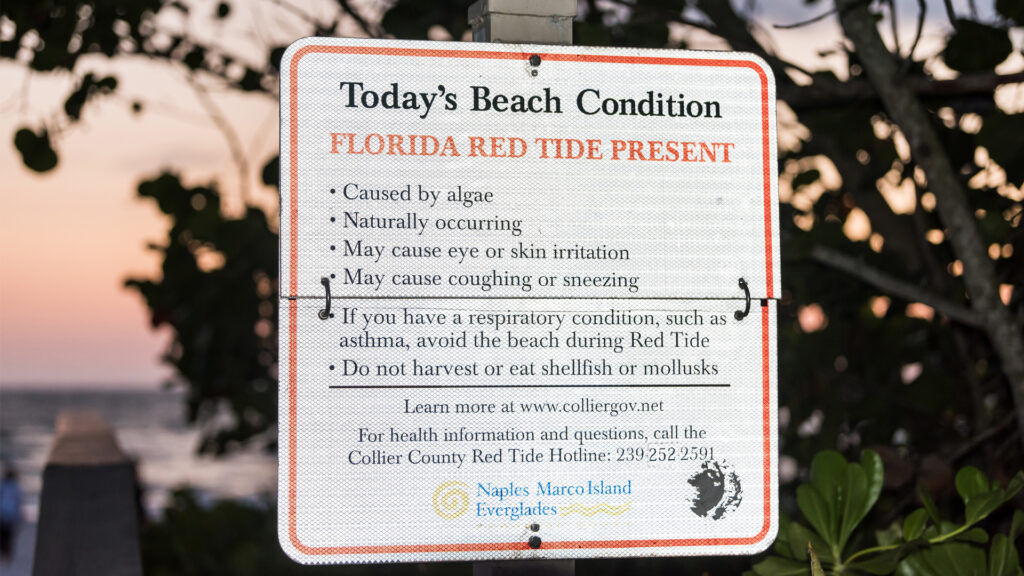By Holly Robbins, UCF News
A new study from the University of Central Florida’s Rosen College of Hospitality Management has found that the loss to tourism-related businesses due to the 2018 Florida red tide bloom is estimated at approximately $2.7 billion.
The research, performed in collaboration with the University of South Florida and Florida A&M University, was recently published in the Journal of Environmental Management. The work offers a profound understanding of the economic impacts of harmful algae blooms on Florida’s tourism sector.
One of the most striking conclusions of the study is the relationship between the severity of red tide blooms and their economic impact on tourism.

Contrary to expectations, the study reveals that low concentrations of red tide can have disproportionate economic impacts compared to more intense blooms.
This finding underscores the importance of how red tide information is communicated and perceived, influencing its economic fallout.
“The magnitude of losses from red tide show how important it is for the federal and state governments to allocate appropriate resources for response and recovery to harmful algae blooms in our coastal communities,” says Sergio Alvarez, the study’s lead author and an assistant professor at Rosen College.
“In addition, coastal tourism businesses should consider harmful algae as a very real risk to the economic sustainability of their operations,” he says. “It is essential that we find appropriate risk management tools for individuals, businesses, and communities that may suffer the economic impacts of harmful algae blooms.”
About the study
The extensive research provides a comprehensive analysis of the economic consequences of marine harmful algae blooms, particularly red tide, on coastal tourism.
With the 2018 Florida red tide bloom causing tourism losses of approximately $2.7 billion, it emphasizes the need to view harmful algae blooms as potential billion-dollar disasters.
Substantial losses occurred in both Southwest and Southeast Florida, amounting to $1.27 billion and $1.35 billion, respectively.
This comprehensive study was based on a unique blend of data sources. It integrated detailed sales information from tourism-related businesses across Florida with state-of-the-art surveillance data on red tide occurrences.
The data was collected and analyzed from two key sources: the Florida Department of Revenue, which provided extensive sales tax collection records, and the Florida Fish and Wildlife Conservation Commission, through its red tide surveillance program.
The combination of these data sources has fortified the study’s findings, making it a valuable resource for understanding the economic dynamics at play, Alvarez says.
He says the study provides vital data for policymakers, environmentalists and tourism stakeholders while serving as a wake-up call to the general public on the significant economic implications of environmental phenomena like red tide.
Researcher credentials
Alvarez received his doctorate in food and resource economics from the University of Florida and joined UCF in 2018. He is a member of UCF’s National Center for Integrated Coastal Research and Sustainable Coastal Systems faculty research cluster.
He has published articles on a range of topics, including the economics of marine resources, the costs and management of biological invasions, and the value of ecosystem services such as clean water and outdoor recreation. His current research includes estimating economic losses and impacts of Florida red tide. Between 2013 and 2018, Alvarez served as the chief economist at the Florida Department of Agriculture and Consumer Services.
This piece was originally published at https://www.ucf.edu/news/ucf-rosen-college-study-reveals-economic-impact-of-floridas-red-tide-on-tourism/.
Sign up for The Invading Sea newsletter by visiting here. If you are interested in submitting an opinion piece to The Invading Sea, email Editor Nathan Crabbe at ncrabbe@fau.edu.



